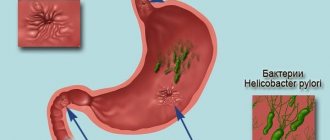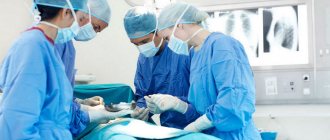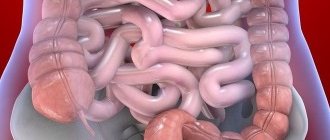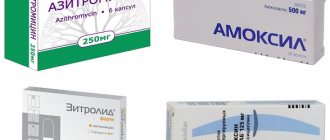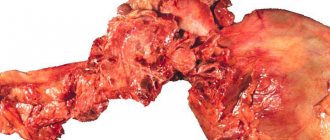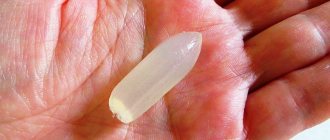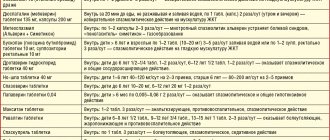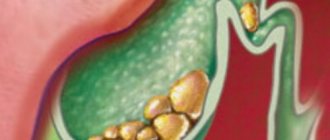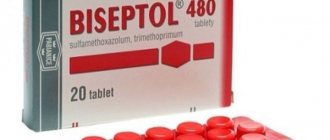Prevention of dysbiosis when taking antibiotics is an important part of treatment and helps to get rid of unpleasant phenomena that may arise during antibacterial therapy.
Prevention includes several stages. It is carried out not only with the use of tablets. It is based on simultaneous adherence to simple but effective nutritional rules and individually selected drug treatment.
Why does dysbiosis occur?
Taking antibiotics is not beneficial. Despite the fact that drugs of this class kill pathogenic bacteria. They have a detrimental effect on the beneficial microflora of the intestines and stomach.
The use of drugs leads to various complications. Most often, during the period of antibacterial therapy, the patient experiences:
- Intestinal dysbiosis and intestinal disorders.
- Disorders of the pancreas and liver.
- Problems with joints, impaired mobility of limbs.
Attention! Dysbacteriosis while taking antibiotics occurs more often than other complications. Because the gastric microflora comes face to face with the medicine. The tablets enter the stomach from there into the intestines.
The medicine begins to act in the stomach, which leads to the massive death of beneficial bacteria. Against this background, dysbiosis occurs.
Intestinal microflora dies under antibacterial agents. A favorable environment for the growth and reproduction of pathogenic microflora appears in the stomach and intestines.
The development of dysbiosis from antibiotics occurs quickly. Within a few days from the moment the patient starts taking the drugs, the first signs of disruption of the gastrointestinal tract appear.
A person cannot refuse to use antibacterial drugs; he is forced to continue the course of treatment. Even when faced with dysbiosis and its unpleasant symptoms, antibiotics cannot be stopped.
Broad-spectrum drugs are especially destructive; they are highly effective and toxic. Medicines can also have a narrow focus; such drugs are not so dangerous for the intestines and stomach. But such antibiotics are not highly effective and are prescribed less frequently.
Treatment should include determination of sensitivity to antibiotics and bacteriophages. For this reason, it is advisable not to prescribe medications of this class on your own, especially if there are no indications for such therapy.
Prevention of dysbacteriosis
Before you start taking medications for dysbiosis, you should think about whether antibiotics are being taken correctly? Prevention of gastrointestinal disorders is carried out in several stages, it is based on:
- on proper nutrition;
- compliance with medication regimen;
- on reducing the toxic effects of drugs on the human body.
Dysbacteriosis from taking antibiotics will not take long to occur if you eat incorrectly. Problems will constantly bother you, and antibacterial therapy will only worsen them. Proper nutrition as part of prevention helps prevent the development of intestinal problems or at least reduce the manifestations of dysbiosis.
If you have an intestinal disorder that occurs while taking pills, it is recommended to avoid:
- Fried and fatty foods that irritate the stomach.
- Carbonated drinks and coffee - they load the liver and gastrointestinal tract.
- Salty, peppery, spicy and other foods that are difficult for the intestines to digest.
Important: If you have intestinal dysbiosis, following a diet helps normalize the functioning of the gastrointestinal tract and reduce the load on the digestive organs.

Antibiotics must be used according to a specific regimen. It is advisable to take the tablets at the same time, with plenty of clean water. When using antibacterial drugs, you should not drink alcohol or take the tablets with orange juice or coffee. Taking medications should be preceded by breakfast, lunch or dinner. If you drink the product on an empty stomach, it will only worsen the situation.
All means are good in prevention. To reduce the toxicity of products, you need to drink as much water as possible. And also include in your diet foods that can reduce the toxicity of antibacterial drugs.
These include:
- Jelly and fruit drinks made from berries and fruits;
- fresh fruits and vegetables rich in fiber and vitamins.
Treatment with an antibiotic does not always lead to the development of dysbiosis; if preventive procedures are carried out correctly, then you may never encounter the consequences of taking the drugs.
But if problems do arise, taking certain medications will help get rid of dysbiosis.
What antibiotics should be used for intestinal infections?
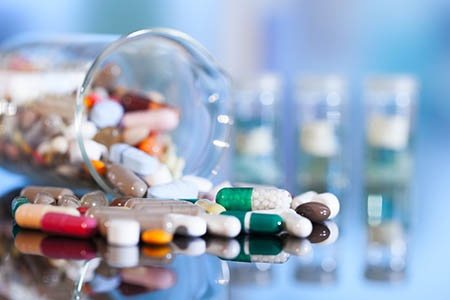
The most pronounced effect is observed if the following groups of antibacterial drugs are used:
- Fluoroquinolones (2-3 generation) - levofloxacin, ciprofloxacin;
- Cephalosporins (2nd-3rd generation) - ceftriaxone, cefoperazone, zinacef.
In the event that the prescribed therapy turns out to be ineffective, it is necessary to prescribe drugs to which the bacteria are sensitive according to the culture results. These are, as a rule, macrolides - clarithromycin, azithromycin or tetracyclines - doxocycline.
It will be necessary to use parenteral forms of antibiotics, since their bioavailability is much higher than that of tablet drugs.
In the event that the inflammatory process is caused by protozoa - intestinal amebiasis, dysentery, then in this case it will be necessary to use antiprotozoal drugs. Of this series, metronidazole performed best. Pimafucin, a proven antimycotic drug, will be effective against fungal processes that arise due to the massive proliferation of microscopic fungi from the genus Candida.
Regarding the dosage, it should be selected in each individual case depending on the patient’s age, severity of the condition and body weight, as well as the presence of contraindications.
Drugs for dysbiosis: classification
What to drink at the first signs of intestinal upset? You can use several drugs that will help not only reduce the toxicity of drug therapy, but also restore the microflora in the intestines.
Taken with antibiotics for dysbiosis:
- Absorbents.
- Prebiotics.
- Probiotics.
- Vitamins.
Signs of intoxication may be added to the symptoms of dysbacteriosis. Absorbents will help get rid of them. They can be taken along with antibiotics. Absorbents have a beneficial effect on the functioning of the gastrointestinal tract.
Adults can take absorbents from the moment treatment begins. They absorb toxins and harmful substances, helping the body cope with the harmful effects of medications. They have a good effect when carrying out complex therapy.
Sorbents only absorb harmful substances and stop diarrhea, but they are able to restore beneficial microflora in the stomach and intestines.
Prebiotics are often used along with antibiotics to prevent dysbiosis. These are drugs that create a beneficial environment in the stomach and intestines for the growth and reproduction of beneficial microorganisms.
Products in this class contain microelements and dietary fiber, amino acids and fiber. Treatment with such drugs stimulates the growth of beneficial microorganisms, due to which digestive problems go away.
In the treatment of intestinal dysbiosis in adults, prebiotics are quite effective. They do not contain befidobacteria and lactobacilli, but they help restore the natural intestinal microflora.
Today it is difficult to surprise anyone with a product that contains beneficial microorganisms. Similar drugs are also taken for dysbiosis when taking antibiotics. Together with absorbents or prebiotics, such drugs are quite effective. To restore intestinal microflora in adults and children, probiotics are most often prescribed.
Note: Drugs of this class cannot completely neutralize the effect of antibiotics. But they will significantly improve the condition of the digestive organs.
When drinking vitamins, you should not expect changes in the intestines. This treatment is aimed at strengthening the body. Stabilization of the immune system. The rules for taking vitamin complexes are indicated on the packaging. There is no particular difference which drug will be preferred.
It is desirable that the complex include vitamins: E, C, A and group B. Such products are prescribed to adults and children. To strengthen the body and as a preventive treatment. During the period of exacerbation of viral and colds.
Determining the degree of effectiveness of drugs is best left “to the shoulders” of the doctor. Let the doctor treat the disease.
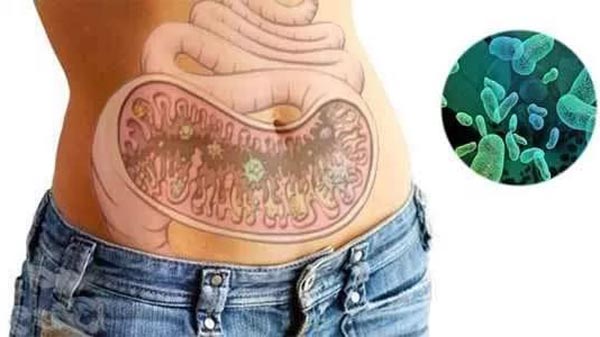
Rules for the use of rectal suppositories
There are certain recommendations on how to properly use suppositories for intestinal dysbiosis:
- Before inserting the candle, wash your hands thoroughly with soap and dry thoroughly;
- put soft suppositories in the refrigerator for a while;
- then moisten it with water or lubricant to make it slide better;
- the patient is placed on his left side, the right limb is pressed to the stomach;
- With light movements, move the buttock and slowly inject the thin side of the product into the rectum or vagina to a level of 2.5 cm, for children - to 1.5 cm;
- After this, squeeze your buttocks and lie quietly for 15 minutes so that the product has time to penetrate deeply and be absorbed.
It is recommended to use suppositories after emptying the large intestine. This will help you get maximum results. To avoid staining your underwear, you need to put a diaper or sanitary pad.
The suppository should be inserted into the anal canal using sterile medical gloves to avoid mechanical damage to the mucous membranes.
For each drug, a specific dosage is indicated in the instructions.
| Medicine | Recommended intake |
| Genferon | 1 piece each 2 times a day for 10 days. |
| Viferon | For premature babies, 1 pc. 3 times a day. for 5 days. During pregnancy in the second trimester - 2 times a day, 1 pc. for 5-10 days. |
| Hexicon | The course of treatment is from 7 to 10 days in a dosage of 1 pc. twice a day. |
| Kipferon | Children: 0-1 years – 1 pc. once a day. Children over 12 years old and adults – 1 pc. three times a day. For vaginal dysbiosis – 10 days, 2 pcs. 2 times a day. |
| Acylact | 2 times 1 pc. for 5-10 days. |
| Bifidumbacterin | For acute intestinal disorders and gastrointestinal diseases, 2 pcs. three times a day. The duration of treatment is determined by the doctor. |
| Sea buckthorn | 1 piece each before going to bed for 10 days. |
Before using any medicine, you should consult your doctor.
Names of drugs and their effects
Treatment of dysbiosis from antibiotics can be done using the following medications:
- Acipol - Restores microflora in the intestines, helps eliminate unpleasant symptoms of dysbiosis Indications for use: long-term therapy using antibacterial drugs. Intestinal infections, prolonged diarrhea, chronic colitis, as well as other diseases of infectious origin.
- Linex - Linex is directly related to the treatment of digestive system disorders. The drug contains live bacteria that are already present in the body of an adult and a child. One capsule helps replenish the imbalance, but taking the medication is long-term, since the beneficial bacteria die under the influence of antibiotics. Indications for use: dysbacteriosis of various etiologies.
- Arthromax is a herbal preparation. Has a complex effect. Helps create a favorable environment in the stomach and intestines for the growth and reproduction of beneficial bacteria. Good results in the treatment process can be achieved only with complex therapy. Indications for use: dysbacteriosis, pyelonephritis, disturbances in the functioning of the gastrointestinal tract.
- Bifidumbacterin - One of the best antagonists, the optimal features of the product - helps not only restore the intestinal microflora, but also stimulates the activity of the immune system. When taking Bifidumbacterin, you should pay attention to the fact that the drug has practically no contraindications. It is difficult to find a more effective remedy in the fight against gastrointestinal disorders. Subject to comparison of 2 parameters: price - quality. Indications: dysbacteriosis, disruption of the gastrointestinal tract, digestive disorders.
- Smecta - Treating dysbacteriosis with Smecta alone is quite difficult. Since the drug is considered an absorbent, it only absorbs toxins and neutralizes their effect. It does not eliminate intestinal microflora imbalance, since it does not contain beneficial microorganisms (bifidum and lactobacilli). For adults, the drug can be prescribed for poisoning, intoxication, etc. Smecta is also given to children for colic.
- Hilak forte - You need to take the product drop by drop, diluting it with a small amount of water. It is better to drink Hilak forte before or after meals. With proper treatment, the symptoms of the disease go away quite quickly. The drug helps create a favorable environment in the stomach and intestines for the growth of beneficial microorganisms. Indications: stomach pain, intestinal microflora disorders, infectious diseases, colitis of various etiologies.
What inexpensive remedies can be taken for dysbiosis:
- Lactobacterin: cost 100-120 rubles. You need to dilute the powder with water and drink it after eating; the symptoms of the disease will go away within 7–10 days from the start of therapy.
- Biovestin: price 70 rub. Available in concentrate form. The concentrate is drunk according to a certain scheme. Contains bifidobacteria.
- Biovestin-lacto: cost-80 rub. Before taking the concentrate, you should read the instructions. Being a probiotic, the extract contains live bacteria, for this reason it must be stored in the refrigerator.
Important: It is better to start treating digestive disorders not when the first signs of dysbiosis appear, but from the start of taking antibiotics.
